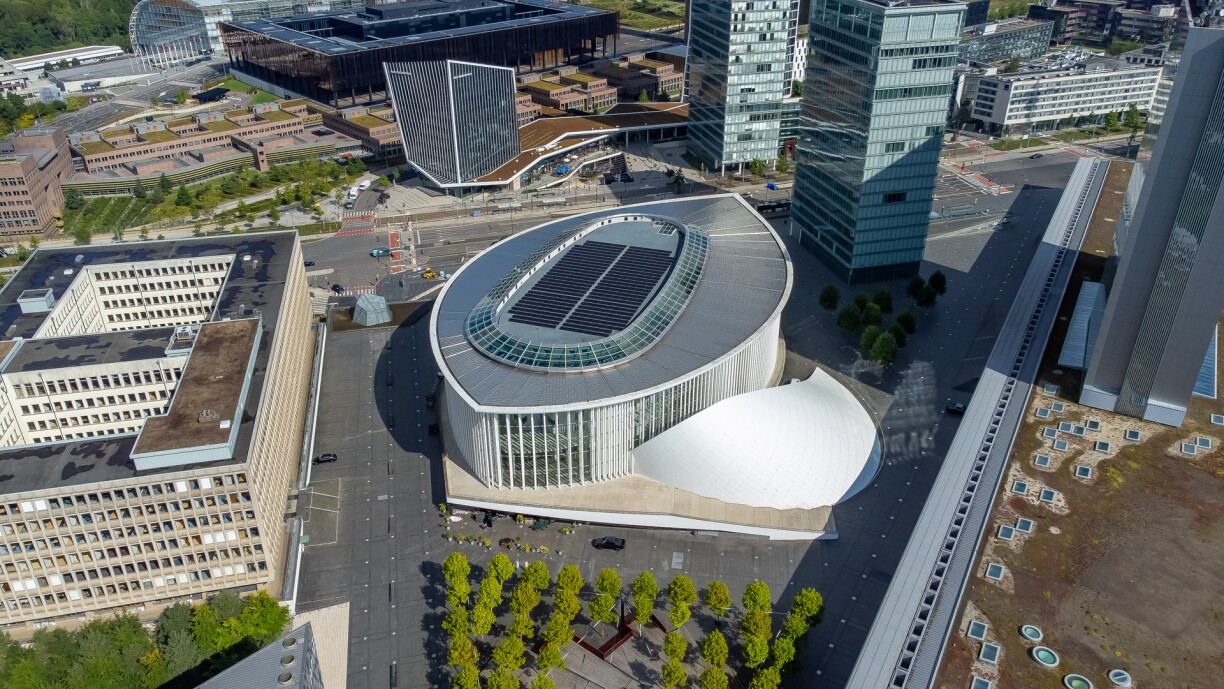
I read that on November 9, 2025, the Philharmonie will host the Israel Philharmonic Orchestra.
After almost two years of genocide in Gaza, as defined by the world’s leading scholars, in which I have seen Israeli soldiers open fire on people waiting in line for a sack of flour, set fire to tents with families inside, compete to see who’s most accurate at shooting children’s limbs off – as recounted by a British surgeon working inside Nasser Hospital in Gaza – and other countless atrocities without any remorse, the Philharmonie’s choice seems insensitive and inappropriate.
Those more superficial will dismiss my indignation as censorship of art, mindlessly repeating the refrain that art is a bridge between peoples.
But my rejection is not an attack on art; it is a conscious position, rooted precisely in my respect for it and in the memory of the atrocities committed by Israel. In the early 2000s, the images coming out of Israel were those of military repression, checkpoints, house demolitions, and Palestinian civilian victims. Israel was perceived almost exclusively through the lens of conflict, terrorism, occupation, and militarisation.
To overturn this image, the government began funding and encouraging artists, musicians, theater companies, festivals, and exhibitions that would present the country as creative, modern, and culturally vibrant. This operation has a name: Brand Israel, a campaign that included culture and the arts, but also tourism, technology, lifestyle, and other forms of image promotion. Many of us, myself included, were influenced by it: as a teenager, I dreamed of Tel Aviv’s nightlife and its dance festivals.
Today, Israel’s image, responsible for what Amnesty International has defined as the “first live streamed genocide”, is once again linked to violence and human rights violations. Its crimes are documented daily on social media, and films about the occupation of the West Bank have even gained Oscar recognition.
This decision by the Luxembourg Philharmonie to host the Israeli orchestra, which prides itself on being the country’s greatest cultural ambassador and which former Israeli President Shimon Peres called indispensable to the country’s identity and its “greatest cultural ambassador”, seems intended to polish Israel’s image by providing a prestigious platform. This echoes the historical understanding of the Berlin Philharmonic’s international tours under Nazi Germany.
While initially seen as artistic events by those who organised them, these tours are now recognised as having culturally legitimised a regime responsible for persecuting and exterminating millions, presenting a cultivated façade that starkly contrasted with the atrocities committed internally.
The Philharmonie’s choice appears even more disconcerting because it comes precisely as the Global Sumud Flotilla sails toward Gaza, with 60 boats from 44 countries and about 26,000 that have registered to participate as volunteers bringing humanitarian aid.
In Genoa alone, more than 300 tons of food were collected thanks to popular mobilisation. After two years of massacres, civil society is no longer willing to remain passive. It is therefore highly likely that many citizens will opt not to attend a concert celebrating the cultural achievements of a state that is accused of actions such as bombing, starving, dehydrating, torturing, burning alive, and denying medical care to millions of Palestinian civilians.
This choice by the Luxembourg Philharmonie confirms that, while civil society has opened its eyes and expresses its indignation, institutions remain prisoners of Western colonial thought and continue to shield Israel, despite crimes that betray the very human values on which our society should be founded.
The Philharmonie, perhaps in good faith, may have thought of offering a sign of peace between cultures. But a government responsible for the deaths of an estimated 18,700 children cannot see its actions legitimised by being given a platform.
And if an orchestra accepts to serve as a cultural ambassador for a country that cages, starves, and bombs millions of people, then the crisis of values lies not only in that regime, but also in those who represent it artistically. I therefore call on the citisens who love attending Philharmonie concerts to make their voices heard, writing to the institution to express our dissent.
I urge the Philharmonie to reconsider its decision to host the Israeli orchestra and to cancel the event. I also call on the government to intervene directly with the Philharmonie, which receives public funding, to ensure the invitation is withdrawn, and more generally to impose sanctions on Israel, officially recognising the ongoing genocide, the 1948 Nakba, the colonisation of Palestinian territories, and Israeli apartheid.
Simply recognising the State of Palestine without acknowledging its history would be a superficial and meaningless act.
It is worth remembering that the Israel Philharmonic Orchestra was founded in 1936 and,ironically, initially named the Palestine Orchestra by violinist Bronisław Huberman. It was composed largely of Jewish musicians fleeing Nazi Europe. After 1948, with the creation of the State of Israel and the Palestinian Nakba, the orchestra assumed its current name, the Israel Philharmonic Orchestra.